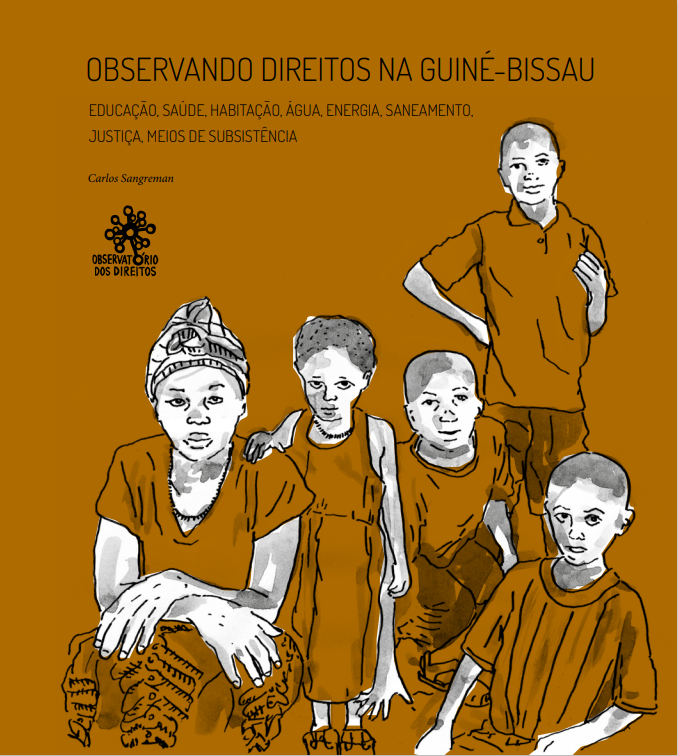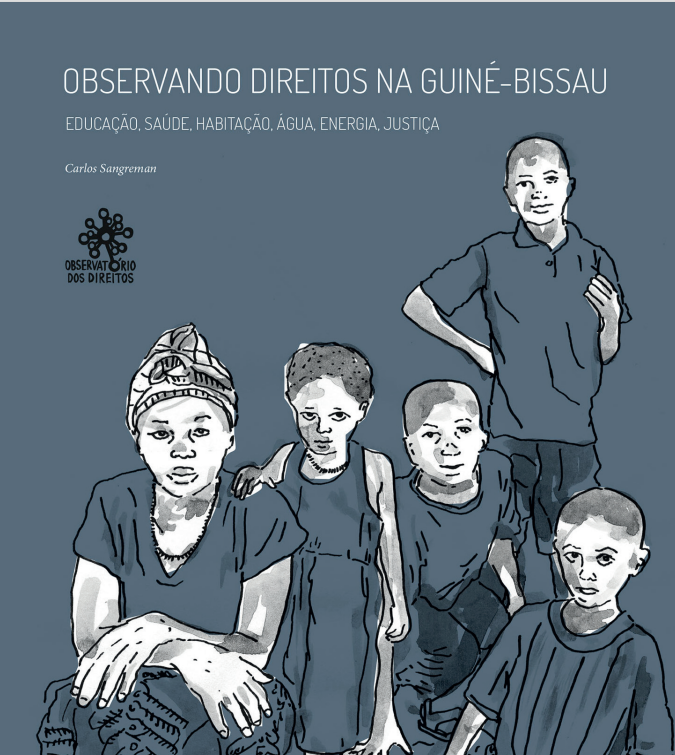CESA

Os Ismailis Lusófonos, os Aga Khan e Portugal: mais de um século de história (Sec xix-xxi)
Abstract:
The commemoration of the 60th anniversary of the rise to the Imamate of Aga Khan IV, His Highness Prince Karim al Husseini, is a moment of particular significance for Ismailis worldwide, especially for those living in Portugal and Spain. While it is important to underline the recent and highly significant developments with regards to the relations between the current Imam and the Portuguese state, much can be gained from providing an historical perspective on this matter. This paper aims to contribute to such endeavour, by analysing both the stablishment of ties between Aga Khans III and IV and the Portuguese Empire on both sides of the Indian Ocean, as well as by examining the history of the Ismaili community then installed in Mozambique.
Quotation:
Nicole Khouri y Joana Pereira Leite, «Os Ismailis Lusófonos, os Aga Khan e Portugal: mais de um século de história (Sec xix-xxi)», Mélanges de la Casa de Velázquez [En línea], 53-2 | 2023, Publicado el 24 noviembre 2023, consultado el 07 diciembre 2023. URL: http://journals.openedition.org/mcv/20283; DOI: https://doi.org/10.4000/mcv.20283

Observando Direitos na Guiné-Bissau: Educação, saúde, habitação, água, energia, saneamento, justiça, meios de subsistência
Quotation:
Sangreman, C. (2017). Observando Direitos na Guiné-Bissau – educação, saúde, habitação, água, energia, saneamento, justiça, meios de subsistência. Lisboa: ACEP, com LGDH e CEsA. ISBN 978-989-8625-16-8

Observando Direitos na Guiné-Bissau: Educação, saúde, habitação, água, energia, saneamento, justiça, meios de subsistência
Quotation:
Sangreman, C. (2016). Observando Direitos na Guiné-Bissau – educação, saúde, habitação, água, energia, saneamento, justiça, meios de subsistência. Lisboa: ACEP, com LGDH e CEsA. ISBN 978-989-8625-14-4

Observando Direitos na Guiné-Bissau: Educação, saúde, habitação, água, energia, justiça
Quotation:
Sangreman, C. (2015). Observando Direitos na Guiné-Bissau – educação, saúde, habitação, água, energia, justiça. Lisboa: ACEP, com LGDH e CEsA. ISBN 978-989-8625-07-6.

Elementos Históricos e Ficcionalidade em Saga d’Ouro
Abstract:
This essay proposes an analysis of Saga d’Ouro (2019) by the Mozambican author Aurelio Furdela. In this Novel, our author skillfully blends historic information with literary art. The narrative takes place in Mwenemutapa, which covers Zimbabwe and a part of the land that is now Mozambique. Through the different stories of the characters, the author portrays the lives of different groups from various perspectives, including political, economic and cultural. Following H.R. Jauss and the Reception theory, the aim of our analysis is to understand the possible intention and critical relationship between past and present, to consider the current state of Mozambican society and its development model to understand the importance of the historical novel in preserving the memory of the past, avoiding the repetition of mistakes in the present.
Quotation:
Zhu, Anqi & Leite, A. M. (2023). “Elementos Históricos e Ficcionalidade em Saga D’Ouro”, In: A narrativa moçambicana no século XXI. Caderno Seminal Digital (n.º 45). Dialogarts. DOI DOI: http://dx.doi.org/10.12957/seminal.2023.79827

Memória e Identidade em Tornado, de Teresa Noronha
Abstract:
This essay proposes a brief study of Tornado (2021), by Teresa Noronha, focusing on the exploration of individual, collective, and post-colonial identities. The methodological framework will rely on a Memory Studies approach, contemplating concepts such as “trauma”, “collective memory”, “feminine countermemory”, and “memory wars”. We aim to recontextualize these conceptual tools beyond Holocaust studies, demonstrating their pertinence for the research put forth here. As such, we present a critical, feminist, and feminine reading of Noronha’s novel focused on its main character.
Quotation:
Aires e Castro, A. & Leite, A. M. (2023). “Memória e Identidade em Tornado, de Teresa Noronha”, In: A narrativa moçambicana no século XXI. Caderno Seminal Digital (n.º 45). Dialogarts. DOI http://dx.doi.org/10.12957/seminal.2023.79823

Crimes e Violência no Índico Moçambicano Rabhia de Lucílio Manjate e a Ilha dos Mulatos de Sérgio Raimundo
Abstract:
This article focuses on two contemporary Mozambican novels: Rabhia by Lucílio Manjate, published in 2017 and A Ilha dos Mulatos by Sérgio Raimundo, published in 2020. Although with different structures and narrative options, as will be seen throughout the article, both the novels look at contemporary Mozambican society through the prism of crime and mystery, providing a multifaceted portrait of post-coloniality in this African country. As will be seen, in these narratives, postcoloniality emerges marked by conflicting memories and complex gender, racial and inter-generational relations, as the result of the multiple situations of violence experienced by the country during historical, political and economic transitions. On the other hand, in both narratives, the representation of the millenary historical and identity relationship between Mozambique and the universe of the Indian Ocean will be analysed, approaching the topics of migration, racial and cultural miscegenation, as well as the diffusion of Islam as a transnational religious and cultural element.
Quotation:
Falconi, J. (2023). “Crimes e Violência no Índico Moçambicano Rabhia de Lucílio Manjate e a Ilha dos Mulatos de Sérgio Raimundo”, In: A narrativa moçambicana no século XXI. Caderno Seminal Digital (n.º 45). Dialogarts. DOI http://dx.doi.org/10.12957/seminal.2023.79831

A Categoria de Poético e a Meditação sobre a Escrita em Marizza de Mélio Tinga
Abstract:
This essay presents a brief study on the novel Marizza (2021), by Mélio Tinga, based on the study and conception of the poetic record that the narrative organizes, as well as on its metanarrative organization, of meditation on writing. The recomposition of the myth of Orpheus in the novel, as well as a set of fragmentary intertexts that compose it, allows the reader to understand the reflective, and somewhat philosophical, dimension that the author and narrator make about beauty, love, passion and about literary life as an institution (writing, edition, proofreading, reception and circulation of the book).
Quotation:
Jeremias, R. M. & Leite, A. M. (2023). “A Categoria de Poético e a Meditação sobre a Escrita em Marizza de Mélio Tinga”, In: A narrativa moçambicana no século XXI. Caderno Seminal Digital (n.º 45). Dialogarts. DOI http://dx.doi.org/10.12957/seminal.2023.79832

Cultura, Cristianismo e Modernidade no Romance Mueda nos Labirintos dos Ritos de Iniciação de Carlos Paradona Rufino Roque
Abstract:
The theme “Culture, Christianity and Modernity in the novel ‘Mueda: nos labirintos dos ritos de iniciação’ by Carlos Paradona Rufino Roque” focuses on the initiation rites of Mozambican culture in the encounter with Christianity and Modernity. Stage of the novel, Mueda is a village in the Cabo Delgado province and the cultural capital of the Makonde people. The aim of the work is to compare the constitutive elements of the initiation rites with the classic myth. Tempering history and fiction, the novel reveals the mysteries of the initiatory liturgy and the syncretic environment of the inhabitants of Mueda, the target of the author’s criticism. The search for the most beautiful young woman through the initiation rites, attracts young people to Mueda. The aim is to conquer the most beautiful woman, which inscribes the novel on the same level as the classical myths such as Paris and Helen or Hippomenes and Atalanta.
Quotation:
Nachivango, P. V. N. & Leite, A. M. (2023). “Cultura, Cristianismo e Modernidade no Romance Mueda nos Labirintos dos Ritos de Iniciação de Carlos Paradona Rufino Roque”, In: A narrativa moçambicana no século XXI. Caderno Seminal Digital (n.º 45). Dialogarts. DOI http://dx.doi.org/10.12957/seminal.2023.79834

O Recente Cenário Literário de Maputo: Notas de Campo
Abstract:
Using the ethnographic tool of the “Field Diary”, resulting from participant observation and photographic recordings carried out in Maputo, between September and October 2022, the main objective of the text is to articulate the current literary scenario of the city with its geography, analyzing permanencies and transformations that are established in the constant dispute between memory and oblivion.
Quotation:
Gallo, F. (2023). “O Recente Cenário Literário de Maputo: Notas de Campo”, In: A narrativa moçambicana no século XXI. Caderno Seminal Digital (n.º 45). Dialogarts. DOI http://dx.doi.org/10.12957/seminal.2023.79835





